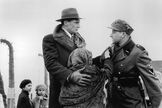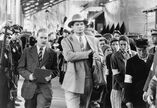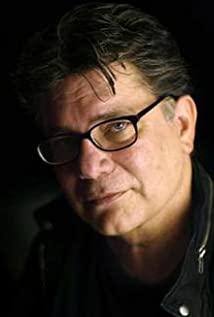The film "Schindler's List" is a movie that recalls the past from the perspective of the present and mourn for Schindler. It summarizes the gratitude of the entire Jewish nation to Schindler through a family's mourning for Schindler, and also reflects the great image of Schindler like a savior. Spielberg, through his skilled director skills and rich historical and cultural background, perfectly interprets the hope that Schindler brought to the Jewish people. Unlike the beginnings of most films, the first shot of Schindler's List is freehand and constantly transitions between freehand and real. It mainly emphasizes the candle, a non-ideological object with mourning significance, to imply the grief and heaviness of the subsequent plot. Therefore, when photographing the family's collective mourning for Schindler, the light was backlit, weakening the facial expressions of the human body and weakening the family, reflecting the importance of the subject candle, and directly triggering the entire Jewish nation represented by this family. All are mourning Schindler. The transition of the film is very natural and smooth. The smoke from the extinguished candle and the smoke from the train chimney perfectly transition the picture from color to black and white, only the color of the smoke is still the same. Such a transformation of time and space not only visually distinguishes the relationship between time and space, but also makes a reasonable description of that tragic era, showing the dark depression and cold despair in the hearts of Jews. So the picture is followed by the registration of Jewish names, and close-up of typing tools and names, suggesting that these tools will become powerful murder tools, while mourning these tragic Jews. Schindler's appearance is full of mystery. The director carefully shaped Schindler's character from all aspects, first showing Schindler's great image through the Jewish general, and then reflecting his character from his life. The director has made a lot of foreshadowing for his appearance. Music, red wine, exquisite cufflinks, and the movements of his clothes all reflect that he is an emotional and attractive mature male image. Spielberg, who has always used special effects, used gray negatives and a portable camera in this film to recreate the history that made all mankind sad and unforgettable. The whole film can be said to be a memoir of Spielberg himself, who is a Jew. This black-and-white film has touched the bottom line of the human soul with its truthfulness and touchingness.
View more about Schindler's List reviews











